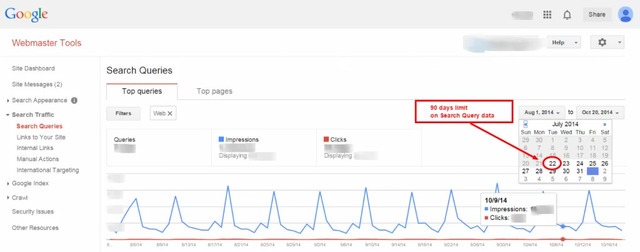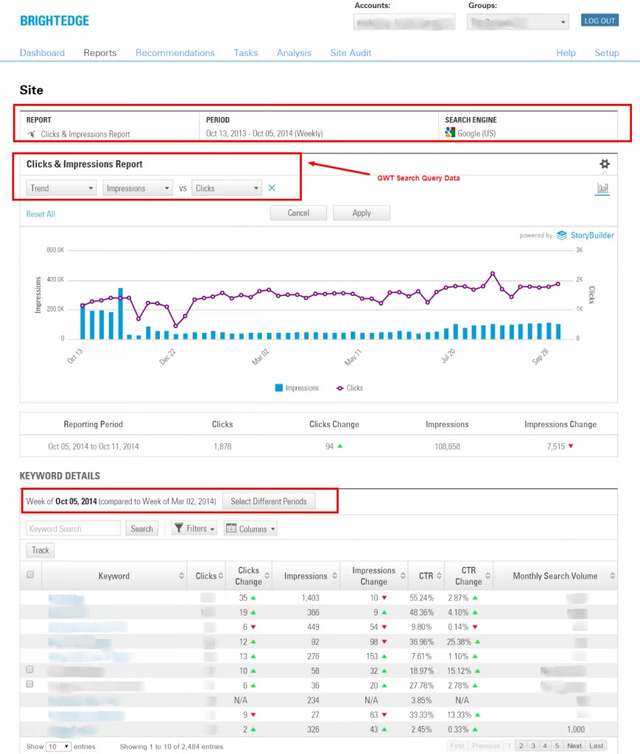Having data that tells you exactly where your web traffic is coming from is an absolutely essential part of successfully running a website. The ability to see exactly what types of marketing initiatives are driving the best results can be the difference between a massively popular vs any largely forgotten website. Of course, with “not provided” it isn’t as simple as using Google Analytics to see which search terms are driving the most traffic. While those secure search terms might currently be the drivers of traffic to your website, the Internet is a rapidly-changing place, with new websites cropping up to compete for your traffic every single day. On top of that, Google’s search algorithm is constantly being updated, all but guaranteeing massive shifts in how search queries generate SERPS.
Analytics is the source of truth
Every time Google comes out with a new search algorithm, SEO marketers and webmasters alike are reminded of how important having robust analytics data truly is. It is simply not possible for anyone trying to earn top levels of web traffic to assume that what works one year will work the next, or for that matter, that what works one month will work the next. With the recent launch of Google’s new “Pigeon” algorithm, everyone was once again reminded of this very important lesson. Google provides webmasters with a robust suite of tools that make it easier to learn what works and what doesn’t.
How to utilze Google Webmaster Tools within the BrightEdge platform
The Google Webmaster Tool is free-to-use and connects to your website to provide a vast amount of useful information. Perhaps the most useful information it provides is “search query data”. Search query data is exactly what it sounds like: detailed information about the search queries that Google users typed in before landing on your website. Search query data will show you exactly how many total search queries returned your webpage, as well as the specific queries that were used to generate that number. Just as important, search query reports will provide exactly how many clicks your website received after being shown on a SERP, and the clickthrough rate (or CTR), which is just the percentage of times your website was clicked after being shown on the SERP. Finally, Google’s search query reports will tell you exactly what your website’s position is on the SERP. For those concerned with SEO (which is likely to be almost everyone reading this), knowing your SERP position, as well as knowing how it changes (hopefully higher) over time, is truly a gold mine of useful information. Google’s Webmaster Tools also allow users to take the search query reports and drill even further into the data. For example, one obvious use is filtering for only search queries that contain a specific word or phrase, or only search queries from a specific form factor (such as a smartphone or a desktop).
However, despite all of these great features, one feature that is sorely lacking in Google Webmaster Tools is the ability to look at data that is more than 90 days old.

Why do you need data that is older than three months?
While Google certainly does provide a robust suite of services within their Webmaster Tools, the fact of the matter is that any webmaster or SEO marketer worth their salt knows that they need access to more than just the last 90 days of data. For some, the solution is to manually copy down the information into an Excel file every month. Not only is this tedious and a waste of time, but it prevents them from using a user-friendly interface to analyze and extrapolate from the data. Google comes out with a new search algorithm frequently, and being able to compare specific data points can be crucial to developing effective SEO content and driving up SERP positioning.
BrightEdge solves the problem of 90-day data
The BrightEdge S3 platform solves the 90-day search query data limitation as all historical search query data is stored within the platform, for use at any time in the future. Instead of being limited to just 90 days of data, or being forced to slave over an Excel spreadsheet every month, BrightEdge clients can access the wealth of information and insights that long-term search query data can provide.

The importance of understanding what search queries are driving traffic is one of the most powerful tools available to webmasters and SEO marketers. With the BrightEdge S3 platform, that tool’s power is magnified many times over.
